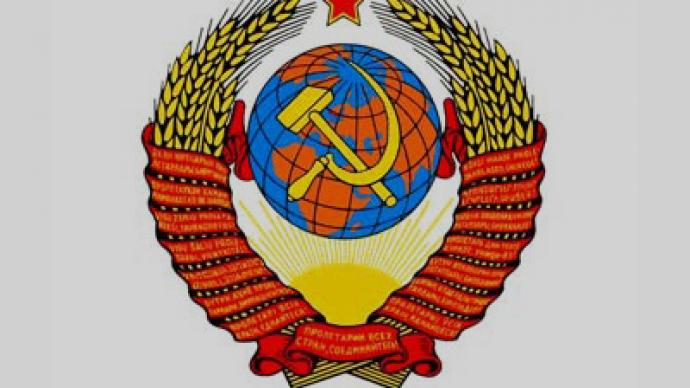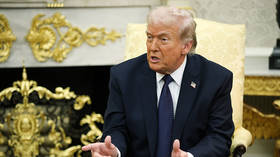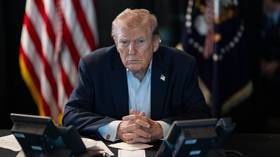“The USSR’s record was a positive one but it cannot be translated for use in modern-day Russia”

Prominent publicist, writer, professor and TV presenter Vitaly Tretyakov analyzes what the USSR’s practical record was with regard to ethnic diversity, and how Russia should now look for a solution to its problem.
Probably for the first time since Perestroika, the president and the prime minister of Russia have addressed the state of the policies on ethnicity in the country and talked about models the authorities might use as a reference point.A discussion which took place in the course of the State Council meeting revealed that Russia lacked models of this kind, other than the one that existed in the USSR. The latter, as the State Council demonstrated, was the most positive experience but it is no longer applicable today.RT spoke to Vitaly Tretyakov, editor-in-chief of Political Class magazine; writer and presenter of the “What Is to Be Done? Philosophical Talks” TV talk show on current politics; founder and editor-in-chief (1990-2001) of Nezavisimaya Gazeta; editor-in-chief (2006-2007) of Moscow News; and head of the HigherTelevisionSchool, Mikhail Lomonosov Moscow State University.RT: Probably for the first time since the collapse of the USSR, the issue of inter-ethnic relations has been discussed at a governmental level. What in your opinion was the discussion that involved both the president and the prime minister all about? Why did they recall the USSR’s record?Vitaly Tretyakov: Many experts warned that Russia had no clear policy on inter-ethnic relations and that nothing good would result from this state of affairs in the present-day situation. But the authorities failed to react to the warnings. Public debates were only held in the wake of the events that clearly derived from ethnic confrontations (several-thousand-strong protests in Manege Square in December 2010, demanding the thorough investigation of a football fan leader’s murder, which ended in clashes with the police and civilians – RT). It was only then that some tough pronouncements were made and the agenda of a State Council meeting was altered. It was decided to publicly discuss all that at the top level.Well, they did.RT: Could you explain the essence of that discussion? After all, for many people, particularly those born after 1991, the USSR’s record is either a blank page or something painted black.VT: An outside observer might indeed have thought that Prime Minister Putin and President Medvedev were talking about slightly different things. As I see it, they were talking about one and the same thing. I mean how the USSR addressed inter-ethnic relations. But Putin was assessing the USSR’s record, while Medvedev claimed that it was inapplicable in the present situation.There was one simple reason for the element of polemic that was present in the debate. On the one hand, you cannot translate the Soviet record to fit modern Russia. On the other, our country lacks any other positive record for dealing with interethnic problems. Whether someone likes it or not, whether it was ideologically-driven or not, we have, in our modern history, only this model as a positive one.Vladimir Putin offered some incontestable evidence showing that this record did exist. He said that there had been no interethnic clashes. And, indeed, there were none – before Perestroika, when everything flew off the handle. In fact, the USSR produced what was called a “new historical entity” – the Soviet people. The definition covered the ethnic variety of people living in the territory of the USSR. And this formula worked. No one within the community of the Soviet people aired grievances as to whether you were [ethnic] Russian or non-Russian. Designing, after the same model, a Russia people has been a failure, and the attempts to that effect were more verbal than practical.The community of the Soviet people was displayed most graphically in this phenomenon. Armenians and Azeris used to intermarry. It was in Baku, where there were a lot of Armenians, and in other areas of the Soviet Caucasus. In Armenia itself, the population was monoethnic; there were few Russians even in the Soviet period. Today, even theoretically, interethnic marriages are inconceivable. But a few decades back it was common practice. Instead we now have the Nagorno-Karabakh problem.RT: How did they handle inter-ethnic relations in the USSR?VT: On the one hand, constant ideological and political work was in progress, meant to make propaganda for the friendship of the peoples and to suggest that all persons and all ethnic groups were equal and good. Historical contradictions should not be forgotten, but the burden of those contradictions must not be hauled into present-day life.On the other hand, any attempts to form some politicized structures, circles or groups on the ethnic principle, to fan ideologies of ethnic pre-eminence were cut short most drastically.It was an ideologically repressive policy. Actually there was a taboo imposed on studying the history of all those past contradictions, such as those between the Armenians and the Azeris. In a sense, it was certainly a damper on freedom of thought, freedom of speech, and freedom of research. But the total effect was positive: we had no interethnic clashes. Those that today are averse to so much as looking at each other, used to intermarry in the Soviet period and their children knew that they were primarily citizens of the Soviet Union.Putin referred to that record as a positive one. And there is nothing aside from it to refer to. It was not so long ago. And it worked.Medvedev indicated that this record couldn’t be translated directly to the present-day reality because you cannot ban the study of conflicts and difficult relations, say, between the South Caucasus nations by a presidential decree. It will be a breach of all Constitutional liberties that we have grown used to. But something certainly should be done.RT: How dangerous for Russia are the things that happened in Manege Square? Nationalistic groups, it seems, easily manipulated football fans protesting against police inequity into challenging Caucasians.VT: All interethnic clashes are highly dangerous. If things come to that, they are, as a rule, the most brutal, uncompromising, and bloody clashes.Russia is a multi-ethnic and multi-faith nation. Many are shy or unwilling to call it an empire, because for many experts this is somehow a negative concept. But the Russian Federation of today is nevertheless in a class of imperial entities by virtue of its complex population composition, even if it is not entirely a classical empire. Empires always have a policy for inter-ethnic relations, a special system of measures that takes into account a possibility of contradictions or even conflicts between different ethnic groups, something that the scientific and intellectual circles in Moscow must have forgotten.The USSR took that into account, while Russia pursues no such policy. The current wisdom is that the USSR was an empire (some say an evil empire, others a good one), while Russia is a democratic state, not an imperial entity, and therefore it must have no imperial contradictions. But the fact that Russia is smaller than the USSR doesn’t make it a totally different thing. Another thing many people forget is that an empire can be absolutely democratic rather than totalitarian or authoritarian like Iraq was, to give you just one example.The authorities in Russia, both current and former, have been unwilling to view Russia as an empire. As a result, they have new problems on their hands because they neglected to take the necessary steps.RT: How do you think we should develop inter-ethnic relations in Russia today?VT: There are steps that must be taken. Something has been done already. You should, for example, recognize the existence of a problem. This is what in fact happened, if under the pressure of events in Manege Square. At long last we hear it discussed openly and in earnest. Second, we should have a discussion on options for Russia’s policy for ethnic minorities. The Soviet model worked and was efficient, but in many respects it is impractical at this point. What other model? The American? It was practically identical to the Soviet one and ceased working in America as well. Can it be applied in modern-day Russia without Soviet ideology? I think not. But this should be discussed too. What other options? Multiculturalism as an EU form of dealing with the problem? But the EU countries themselves claim that this model has failed.A large-scale discussion should be held at three levels. Firstly, at the political level, and this was initiated by the State Council. At this level we must draw a line between things that can be discussed openly and things to be discussed by experts behind closed doors. It is important to keep in mind that inter-ethnic conflicts are a very sensitive issue. By openly discussing existing problems you can end up with even greater problems. Certain issues ought to be discussed within a restricted circle. The discussion should involve all specialists rather than only those especially beloved by the Kremlin, and things discussed mustn’t be made public. This is the second level – a closed discussion by specialists and experts. The third – interim – level is a public discussion. The floor should be given to representatives of ethnic communities, to representatives of the ethnic Russian population as the one that forms the backbone of this nation, and to representatives of religious faiths present in Russia. We need to look for constructive solutions and proposals. This problem cannot be solved in a matter of days or months. The discussion should be skillfully moderated and regulated, lest a televised quarrel between two experts should erupt into street clashes in some or other city of Russia.RT: Why do you think we need this discussion?VT: The authorities have to develop a methodology for dealing with problems of this kind and for minimizing the risks. We cannot remove them entirely. But the policy must be pursued. The question is, who is going to do that? Medvedev rejected the idea of forming a ministry for ethnic affairs. We must discuss whether those issues should be addressed at the regional level or at the level of several federal agencies. All opinions must be taken into consideration, even those offered by participants in the discussion that the authorities detest.
Nadezhda Kevorkova, RT
Also read Maxim Shevchenko's column on the issue here












